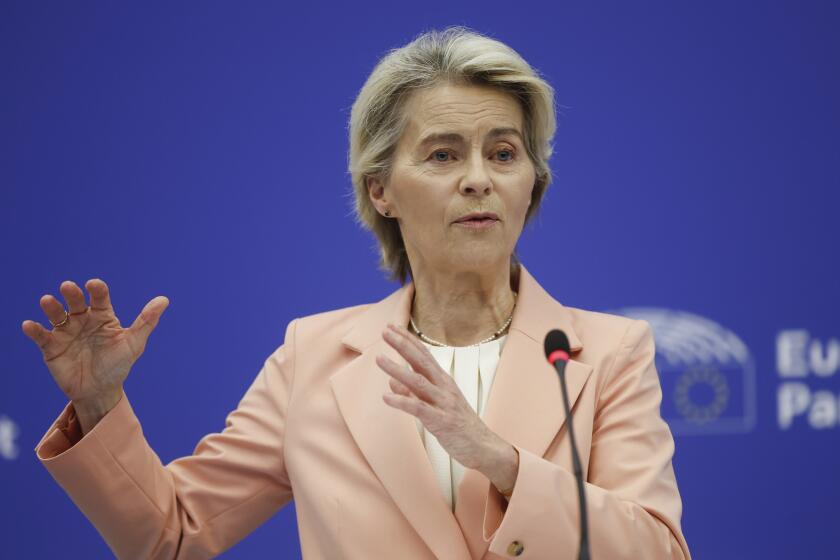Senate Hearing Sought for UCI Failures
Two state senators asked Tuesday for a hearing into the repeated problems in UC Irvine’s medical programs, including the failure of the liver transplant program and questions of nepotism involving top executives.
In a letter to the heads of the Senate Education and Health committees, Sens. Abel Maldonado (R-Santa Maria) and Gloria Romero (D-Los Angeles), the majority leader, called on them to hold a joint hearing to address “exceptions made in university policy, favoritism charges [and] lack of transparency and disclosure” at UCI.
“To date, no one has been held accountable for these repeated transgressions,” the letter said. “Now is the time that [the] Senate show leadership and shine a bright light on UCI and its practices.”
Sen. Deborah Ortiz (D-Sacramento), who heads the Health Committee, said in a prepared statement that the problems at UCI “warrant a full investigation” and that she would seek a hearing. The office of Sen. Jack Scott (D-Altadena), who chairs the Education Committee, had no immediate comment.
The Times reported in November that 32 liver transplant patients died in 2004 and 2005. The deaths occurred while the medical center, in Orange, was rejecting viable livers, at times because it had no surgeons to perform the transplants. The center was also accused of performing too few kidney and bone marrow transplants, and the chief and former assistant chief of the cardiology department do not hold state medical licenses or U.S. board certification.
Questions also have been raised about the hiring of top executives’ close relatives in the medical school and medical center and the awarding of a residency position to the son of a donor to the school. In each case, UCI investigations concluded that nothing was wrong.
The FBI and the U.S. Department of Health and Human Services are investigating whether there was fraudulent billing of government health insurance programs and have subpoenaed the compensation agreements of five current and former doctors at the hospital.
Susan Menning, a UCI spokeswoman, said the university had taken steps to address problems since the liver program was closed, including convening a panel of experts to scrutinize the medical programs and recommend changes, and creating a new position to oversee the medical center and medical school.
The panel found the university did not have the resources to match its ambition and cited a lack of accountability by executives in the medical programs.
“UCI has aggressively addressed these problems since the liver issues came to our attention in November,” Menning said. “We’ve cooperated with a lot of agencies, and we’ll continue to.”
Maldonado and Romero have been among the harshest legislative critics of the University of California system over revelations that top executives received more pay and perks than had been publicly disclosed or approved by the UC regents. The Senate Education Committee is the same panel that held hearings into the compensation issues.
Maldonado said he became interested in the problems at UCI last fall while focusing on UC compensation. He said he noted the institution had had a string of problems dating to the theft of eggs and embryos from fertility patients in the mid-1990s and wondered why UCI continued to have difficulties. The letter he and Romero wrote referred to many of the problems UCI has faced since then, including its donated-cadaver program, in which body parts were sold without consent.
“No one’s manning the house,” Maldonado said. “Who’s in charge? Why have all these problems happened at UCI? Is there a systemic problem there? The bottom line is too many unanswered questions.”
More to Read
Sign up for Essential California
The most important California stories and recommendations in your inbox every morning.
You may occasionally receive promotional content from the Los Angeles Times.










